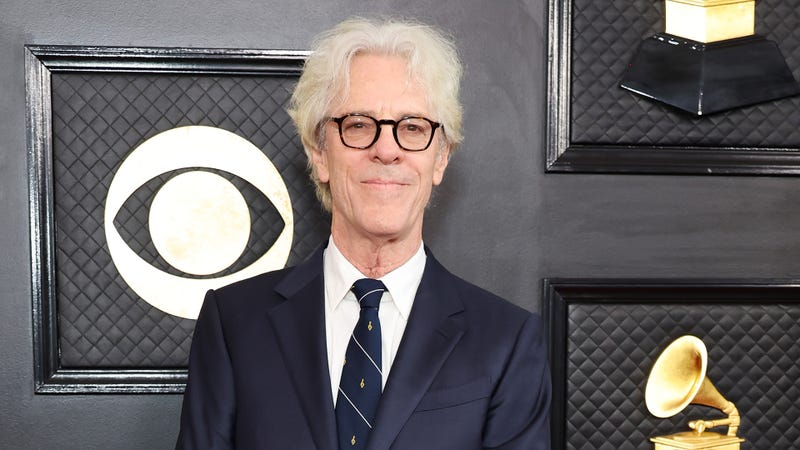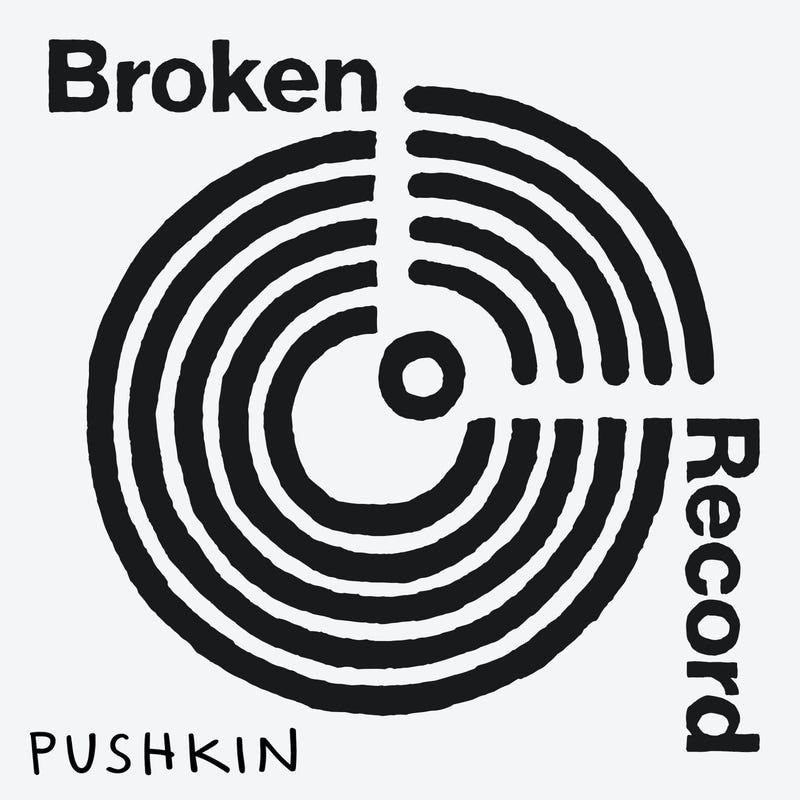
This week, drumming icon Stewart Copeland -- best known for his tenure with The Police -- joins the Broken Record podcast to talk about his musical upbringing, which would eventually make him part of one of the biggest rock bands of all time, and his subsequent fallout with fellow musical luminary, Sting.
LISTEN NOW: Broken Record | Stewart Copeland
Joining host Bruce Hedlam for a wide-ranging chat, Copeland got right into the discussion about his time with The Police in the late '70s and early '80s, also documented in his 2023 book, Stewart Copeland’s Police Diaries, an incredible chronicle of three years "at the cusp.”
“I've got these diaries sitting in a drawer over there, and they're tiny little books, so they don't take up too much space. I still got them," Stewart says of the book's inspiration. "I'm not quite sure where the idea came from to turn them into kind of more like a scrapbook than a book-book. But looking at these notes, how much we got paid, what clubs we played, just the statistics of the day got me thinking and philosophizing,” he explains. “So I ended up writing a lot of modern commentary to go with those historical notes.”
“I've got my secret innermost thoughts, which are not pretty,” Copeland adds. “They take on a comedic element 40 years later. But it's all my secret, grandiose schemes, gloating over this grievance, nurturing you know, ‘I don't need these guys!’" A stark contrast from how it all started. “From the first time we played together,” he remembers, “[Sting] came down to London. He called me from a phone booth on the street outside my apartment and he came on up. We just plugged in and started playing and the rest is history. We just knew that this is the right musical company.”
The first time Stewart had seen Sting perform was during a night off in Newcastle while playing in his successful prog rock group, Curved Air. He was playing with a “progressive jazz crossover kind of thing,” says Stewart, “and I didn't that much care for the music. But the bass player could play bass and sing, and I was looking for either guitarists who could sing or a bass player who could sing… because I can't. I'm breathing too hard banging on drums. And I could see, ‘Yeah, he can sing and play bass. That's cool. And look behind him. Yep, that's a nice big old Fender Bassman amp he's got there. But that wasn't what really did it. What really did it for me was that golden ray of celestial light coming down from the heavens, alighting upon his magnificent brow. And I looked up there at that guy on stage with his pretty serviceable amp, can sing and play bass, and saw that as a meal ticket!”
Eventually, he was able to successfully lure him into his then non-existent band, with Andy Summers on guitar, and over the course of just a few short years, the ride had come to an end. “I guess, to the annoyance of my bandmates, I would resist the straight backbeat… so it was probably a distraction,” he admits. “’Why can't they just play a backbeat?’ Well, because I don't want to. I want to look for something else somewhere, making it interesting or difficult. That was a Freudian slip, interesting or different,” he explains.
“I would say… I think as we were excited when Sting brought in a song. He was excited when I'd f*** up the rhythm,” Stewart says. “Because you know, we were co-dependent at the time, and he was real pleased that we'd take an interest in his song. Of course, later after he'd written 20 hits, you know, he was less concerned whether we liked the song or not, it's a hit because he wrote it.”
“As he got more and more in control of his medium and became a better and better songwriter, he had less and less patience for collaboration,” Copeland explains. "We understand that now, and I'm very grateful that we got five albums out of that son of a bitch, because it became more and more difficult for him to compromise and collaborate because his musical ideas -- and I understand this as an orchestral composer," Copeland says, "the musical ideas are fully formed in his mind. And by the way, he knows a thing or two about where to put the drums and how to use the drums.”
“The times when it was most urgent that I throttle and kill him was when he was right,” he adds. “He was often right, let's call it often right. What he was wrong about was the effect that had on his two bandmates for him to be implacable. I would describe it as a form of Asperger’s, and I mean that as a compliment… music is so important to him, it just makes him feel sick to get it wrong. And I'm grateful that he was able to put up with these intrusions on his pure concept. But he did put up with it, and it got more and more difficult, which is why there was friction in the band. And finally, you know, if you love somebody, set them free... and off he went.”
Listen to the full episode with Stewart Copeland -- now playing on Audacy -- and follow along for even more conversations with hosts Rick Rubin, Malcolm Gladwell, Bruce Headlam, and Justin Richmond as they speak with the musicians you love to discuss their lives, inspiration, and craft.
